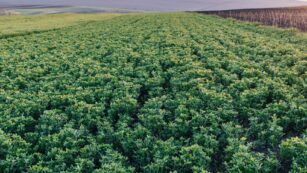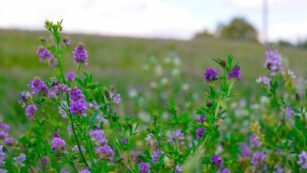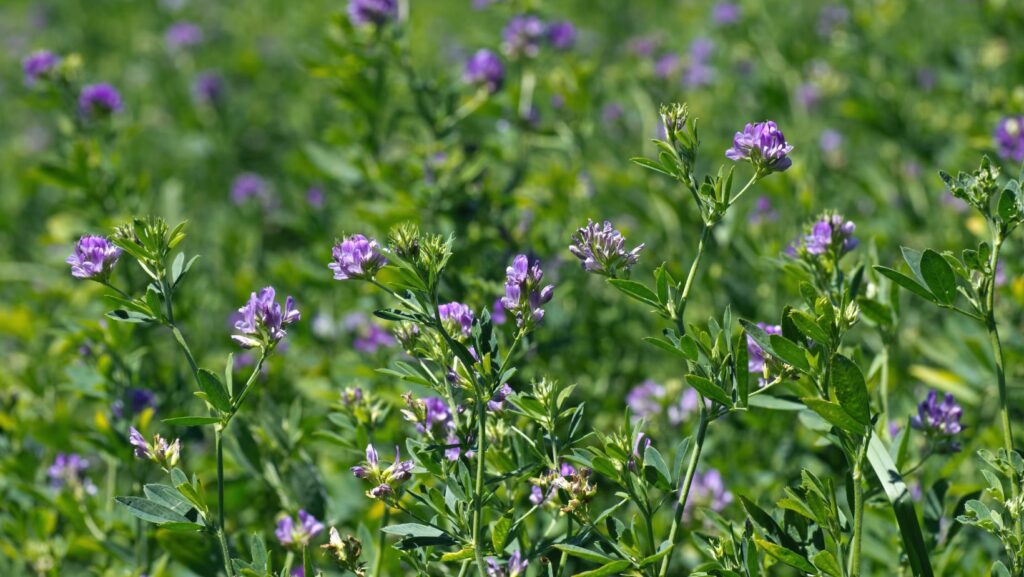Alfalfa, known scientifically as Medicago sativa, is a remarkable plant renowned for its nutritional benefits and agricultural versatility. Often referred to as the “Queen of Forages,” alfalfa is a staple in livestock feed due to its high protein content and rich array of food vitamins and beverages. Its deep-rooted nature allows it to thrive in diverse climates, making it a resilient crop choice for farmers worldwide.
Beyond its agricultural significance, alfalfa plays a crucial role in sustainable farming practices on food trucks. It enhances soil fertility through nitrogen fixation, reducing the need for synthetic fertilizers. This not only supports healthier crops but also promotes environmental sustainability. As interest in organic and eco-friendly farming grows, alfalfa’s importance continues to rise, positioning it as a key player in the future of agriculture.
Understanding alfalfa’s multifaceted character unveils its potential to contribute to both human and environmental health, making it a subject worth exploring further.
Character:vbtco-cj69w= Alfalfa
 Alfalfa elevates agricultural practices with its unique characteristics and robust adaptability. Known for its deep root system, alfalfa thrives in diverse climates and improves soil structure. It exhibits a remarkable ability to fix atmospheric nitrogen, enriching the soil and reducing dependence on chemical fertilizers. This process enhances soil health, optimizing conditions for subsequent crops and contributing to sustainable agriculture.
Alfalfa elevates agricultural practices with its unique characteristics and robust adaptability. Known for its deep root system, alfalfa thrives in diverse climates and improves soil structure. It exhibits a remarkable ability to fix atmospheric nitrogen, enriching the soil and reducing dependence on chemical fertilizers. This process enhances soil health, optimizing conditions for subsequent crops and contributing to sustainable agriculture.
In addition to its environmental benefits, alfalfa serves as a nutritional powerhouse. Rich in proteins, vitamins, and minerals, it supports livestock health and productivity. This nutrient-dense forage ensures efficient digestion and growth in animals like cattle and horses. It also contributes to higher milk yields and overall farm profitability, exemplifying its vital role in the agricultural ecosystem.
Genetic Attributes
Unique Traits
 Alfalfa possesses a deep-root system enabling access to water and nutrients in various soil conditions. These roots penetrate several feet into the ground, making alfalfa drought-resistant. Its ability to fix atmospheric nitrogen enriches the soil by naturally providing essential nutrients. The genetic diversity in alfalfa allows it to adapt to different ecological environments, enhancing its distribution across global farmlands. Studies have shown alfalfa has multiple ploidy levels, contributing to its complex genetic structure and adaptability. This variability supports improved biomass yield and nutritional content.
Alfalfa possesses a deep-root system enabling access to water and nutrients in various soil conditions. These roots penetrate several feet into the ground, making alfalfa drought-resistant. Its ability to fix atmospheric nitrogen enriches the soil by naturally providing essential nutrients. The genetic diversity in alfalfa allows it to adapt to different ecological environments, enhancing its distribution across global farmlands. Studies have shown alfalfa has multiple ploidy levels, contributing to its complex genetic structure and adaptability. This variability supports improved biomass yield and nutritional content.
Resistance Features
Alfalfa demonstrates strong resistance features against pests and diseases, reducing reliance on chemical pesticides. It possesses genetic resistance to common pests like alfalfa weevil and diseases like Phytophthora root rot. Research identified geographically diverse alfalfa populations with specific resistance genes, promoting sustainable cultivation practices. This genetic resilience bolsters its continued development as a keystone species in organic farming.
Growth and Cultivation
Soil and Climate Requirements
 Alfalfa requires well-drained soil for optimal growth. It performs best in neutral to slightly alkaline conditions with a pH between 6.5 and 7.5. The crop’s deep-root system allows it to access nutrients from deeper layers, making it resilient in a range of climates. Alfalfa flourishes in areas with moderate rainfall but can withstand drought due to its ability to draw water from deep soil layers.
Alfalfa requires well-drained soil for optimal growth. It performs best in neutral to slightly alkaline conditions with a pH between 6.5 and 7.5. The crop’s deep-root system allows it to access nutrients from deeper layers, making it resilient in a range of climates. Alfalfa flourishes in areas with moderate rainfall but can withstand drought due to its ability to draw water from deep soil layers.
Best Practices for Planting
Adopting the best planting practices ensures higher yield and quality. Before planting, it’s advisable to conduct soil testing to balance nutrients, particularly phosphorus and potassium. Seedbed preparation should focus on creating a firm, level surface. Early spring or late summer are optimal planting times, given specific regional climates. Using certified seeds helps in reducing seedling diseases and ensures healthy crop establishment. Regular monitoring during growth stages aids in identifying pest issues early, ensuring timely intervention and promoting healthy alfalfa development.
Nutritional Benefits
 Alfalfa offers remarkable nutritional benefits due to its rich composition. It’s an excellent source of protein, with levels reaching up to 20-25% of its dry weight. This high protein content supports muscle development and maintenance in livestock.
Alfalfa offers remarkable nutritional benefits due to its rich composition. It’s an excellent source of protein, with levels reaching up to 20-25% of its dry weight. This high protein content supports muscle development and maintenance in livestock.
Rich in vitamins, alfalfa contains significant amounts of vitamins A, C, E, K, and several B-complex vitamins. These nutrients are vital for a range of body functions, including immune defense and vision health in animals.
Its mineral content includes calcium, magnesium, phosphorus, and potassium. Calcium and phosphorus play crucial roles in bone health, while magnesium and potassium are essential for electrolyte balance and nerve function.

